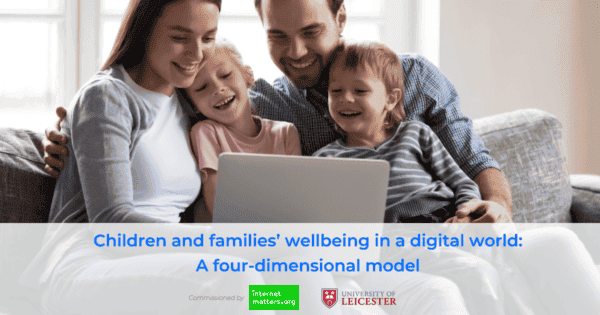This report was developed and validated through a literature review and through consultation with stakeholders representing the education sector, technology industry, policy, the academy, third sector, media sector, and local authorities. Internet Matters then took the model to parents and teens in a set of focus groups to understand its accessibility, how well the four dimensions resonated and how they understood their wellbeing to be impacted by their digital lives.
Through these conversations, it emerged there was some uncertainty around the term ‘wellbeing’, particularly for children where it was less wellused. However, there was a broad understanding of the concepts involved and participants were universally able to recognise some potential impact of the digital world on an individual’s
and a family’s wellbeing. This phase of the research also presented an early understanding of the differences seen within families depending on parenting style and attitude to technology. Those with stricter rules on digital
access for their children focussed on regulating their children’s screen time, whereas parents with a more lenient approach to technology use tended to speak about having open conversations and positively engaging in their children’s digital worlds to a greater degree.
For older teens, they described their online life as being effectively inseparable from their non-digital life. They were particularly aware of the opportunities it provides to be an active citizen and engage with the world in a way that only digital media can offer. Overall, these groups provided reasonable confidence that the essence of these four dimensions is valid from the perspective of those we spoke to with no significant omissions.


